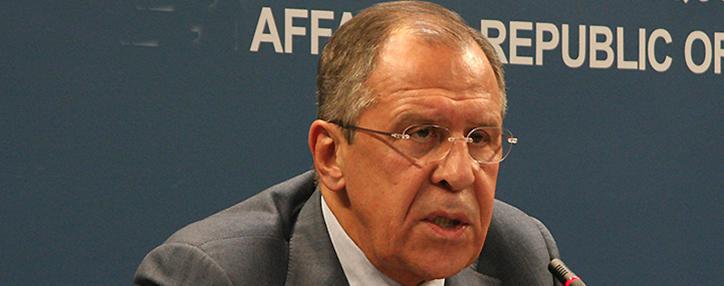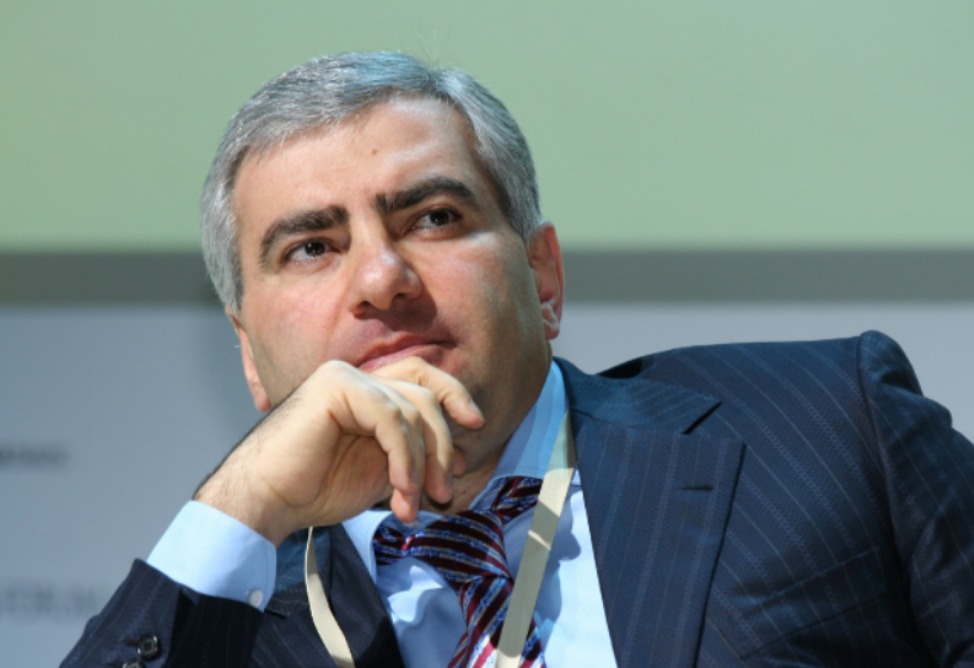Russian foreign minister chides PACE for interfering with Karabakh settlement
09.11.2015,
19:47
Speaking at a news conference in Yerevan today the visiting Russian foreign minister Sergey Lavrov chided the Parliamentary Assembly of the Council of Europe (PACE) for interfering with the settlement of the Nagorno-Karabakh conflict, saying the OSCE Minsk Group co-chairs are mandated to help the sides forge out a mutually acceptable peace formula.

YEREVAN, November 9. / ARKA /. Speaking at a news conference in Yerevan today the visiting Russian foreign minister Sergey Lavrov chided the Parliamentary Assembly of the Council of Europe (PACE) for interfering with the settlement of the Nagorno-Karabakh conflict, saying the OSCE Minsk Group co-chairs are mandated to help the sides forge out a mutually acceptable peace formula.
On November 5, the Committee on Political Affairs and Democracy of the Parliamentary Assembly of the Council of Europe (PACE), approved an anti-Armenian report entitled “Escalation of Violence in Nagorno-Karabakh and Other Occupied Territories of Azerbaijan” by Robert Walter from the United Kingdom, a rapporteur of the PACE Political Affairs Committee. The report contains numerous anti-Armenian wordings that are unacceptable to both Armenia and Nagorno-Karabakh. The report is put on PACE’s January session.
Lavrov said the co-chairing countries -Russia, France and the United States - stand firmly opposed to all attempts to shift the resolution of the Nagorno-Karabakh conflict from the OSCE Minsk Group to any international organization not mandated to tackle the problem. According to him, the road to peace lies through consistent and patient dialogue.
Lavrov said the co-chairs work on the basis of arrangements and agreements reached by the sides to the conflict , and the Minsk Group trio is the only authorized body on the Nagorno-Karabakh settlement.
"Any sudden drastic action, no matter who does it, only harms the work of the co-chairs, who are working very actively and publicly and are in constant contact with the parties both at the level of ministers and special representatives," Lavrov said.
The Nagorno-Karabakh conflict erupted into armed clashes after the collapse of the Soviet Union in the early 1990s as the predominantly Armenian-populated enclave of Azerbaijan sought to secede from Azerbaijan and declared its independence backed by a successful referendum.
A truce was brokered by Russia in 1994, although no permanent peace agreement has been signed. Since then, Nagorno-Karabakh and several adjacent regions have been under the control of Armenian forces of Karabakh. Nagorno-Karabakh is the longest-running post-Soviet era conflict and has continued to simmer despite the relative peace of the past two decades, with snipers causing tens of deaths a year. –0-
On November 5, the Committee on Political Affairs and Democracy of the Parliamentary Assembly of the Council of Europe (PACE), approved an anti-Armenian report entitled “Escalation of Violence in Nagorno-Karabakh and Other Occupied Territories of Azerbaijan” by Robert Walter from the United Kingdom, a rapporteur of the PACE Political Affairs Committee. The report contains numerous anti-Armenian wordings that are unacceptable to both Armenia and Nagorno-Karabakh. The report is put on PACE’s January session.
Lavrov said the co-chairing countries -Russia, France and the United States - stand firmly opposed to all attempts to shift the resolution of the Nagorno-Karabakh conflict from the OSCE Minsk Group to any international organization not mandated to tackle the problem. According to him, the road to peace lies through consistent and patient dialogue.
Lavrov said the co-chairs work on the basis of arrangements and agreements reached by the sides to the conflict , and the Minsk Group trio is the only authorized body on the Nagorno-Karabakh settlement.
"Any sudden drastic action, no matter who does it, only harms the work of the co-chairs, who are working very actively and publicly and are in constant contact with the parties both at the level of ministers and special representatives," Lavrov said.
The Nagorno-Karabakh conflict erupted into armed clashes after the collapse of the Soviet Union in the early 1990s as the predominantly Armenian-populated enclave of Azerbaijan sought to secede from Azerbaijan and declared its independence backed by a successful referendum.
A truce was brokered by Russia in 1994, although no permanent peace agreement has been signed. Since then, Nagorno-Karabakh and several adjacent regions have been under the control of Armenian forces of Karabakh. Nagorno-Karabakh is the longest-running post-Soviet era conflict and has continued to simmer despite the relative peace of the past two decades, with snipers causing tens of deaths a year. –0-



